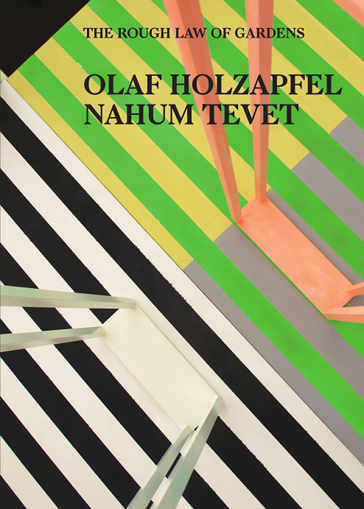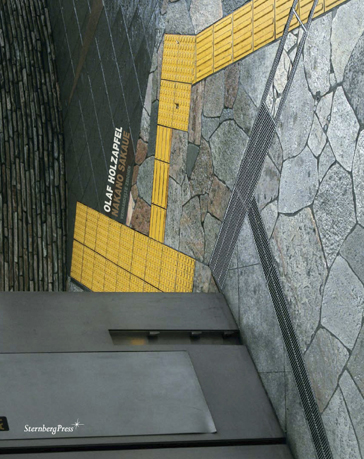Your cart is currently empty.
Cart
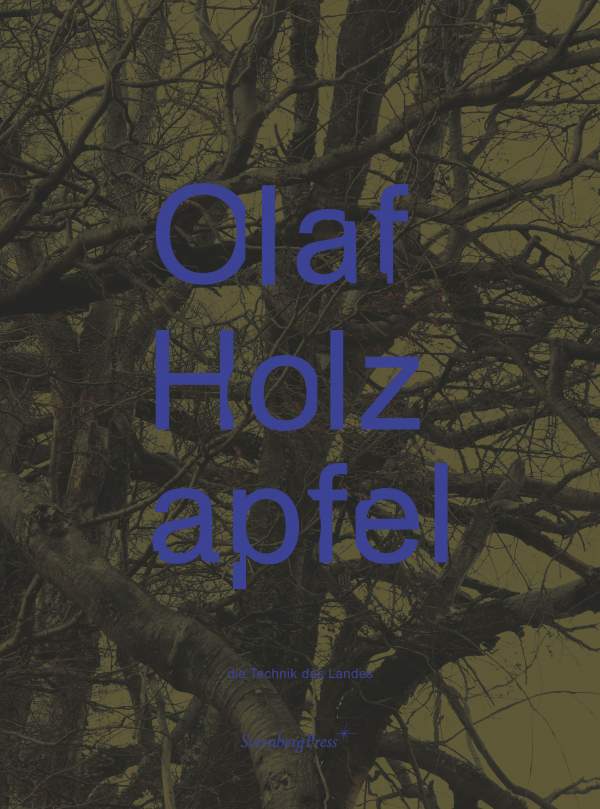
die Technik des Landes
(The Technology of the Land)
Edited by Lindenau-Museum Altenburg
Text by Jennifer Allen
Olaf Holzapfel’s work proves the indissoluble connection between human settlement, technique, and abstraction. Elementary space-generating methods like plaiting, weaving, and latticing—age-old settler techniques—stem from natural linear entities. These techniques are exceptional in that they don’t differentiate between technique or machine, or whether a structure is purely functional, for living, or auxiliary. Holzapfel scrutinizes the perception and presence of material within space and whether an image discourse can exist without these physical modules. For him the landscape, and the material it contains, is more than a symbol that fixes identity; rather, it becomes a transmitter.
Holzapfel’s exhibition at the Lindenau-Museum Altenburg, on occasion of being awarded the Gerhard-Altenbourg Prize 2014, explores the interstices between craft and art, and consequently, between orality and literacy. Much of his work presented in this catalogue—framework installations, hay images, and straw images are displayed in this book—was made together with farmers and craftspeople; by transforming age-old handiwork into contemporary art, Holzapfel unsettles the division between nature and culture, and tradition and modernity.
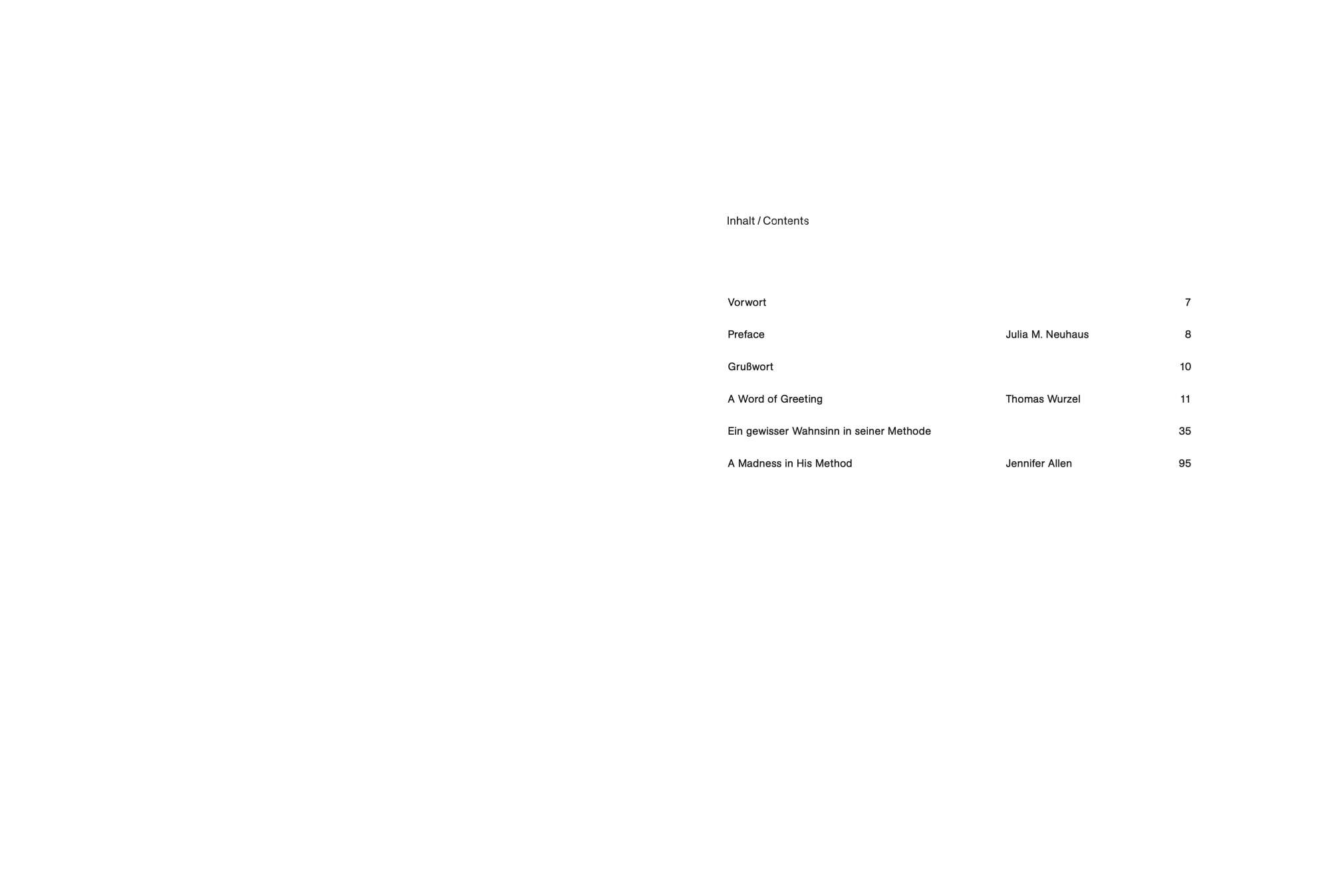
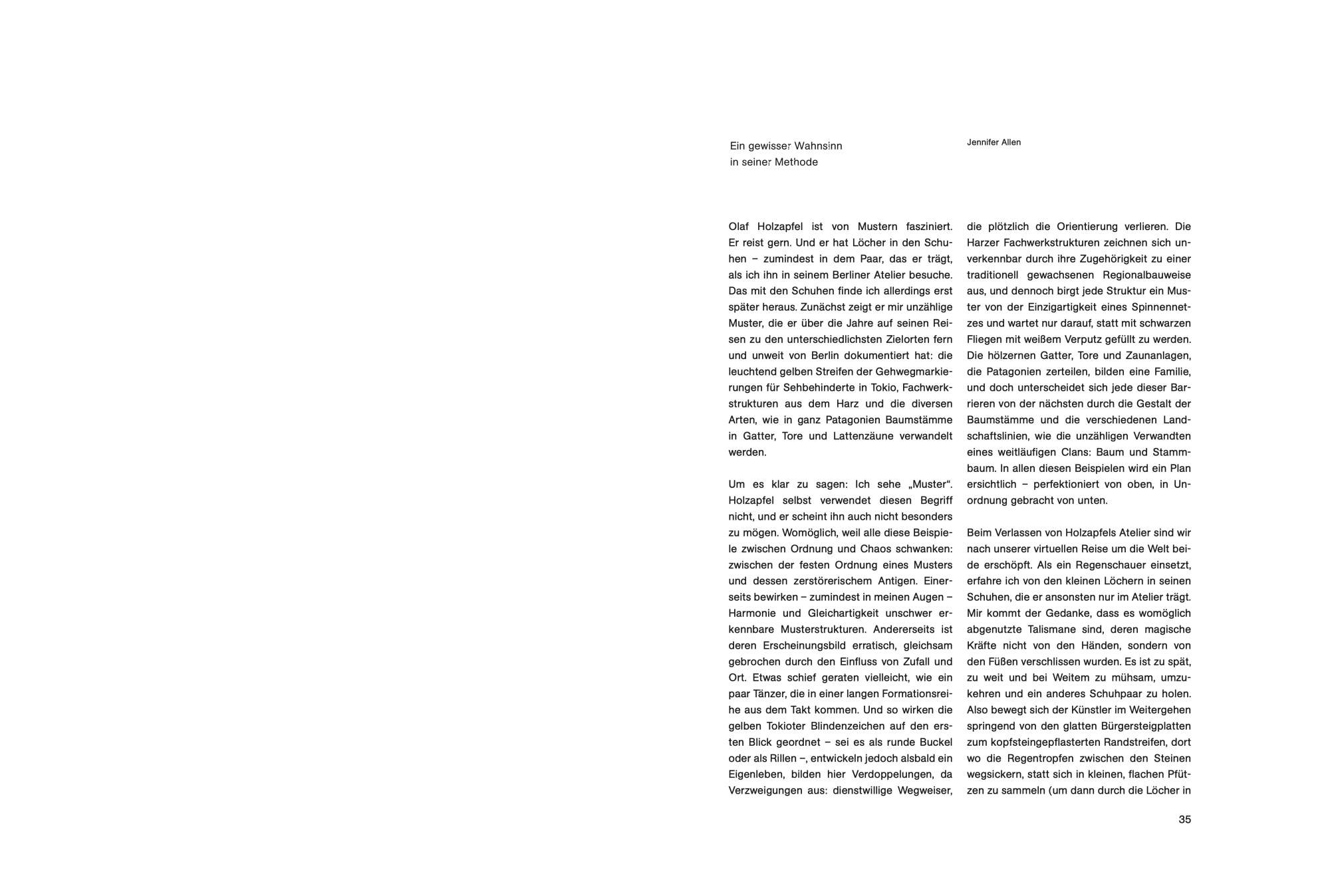
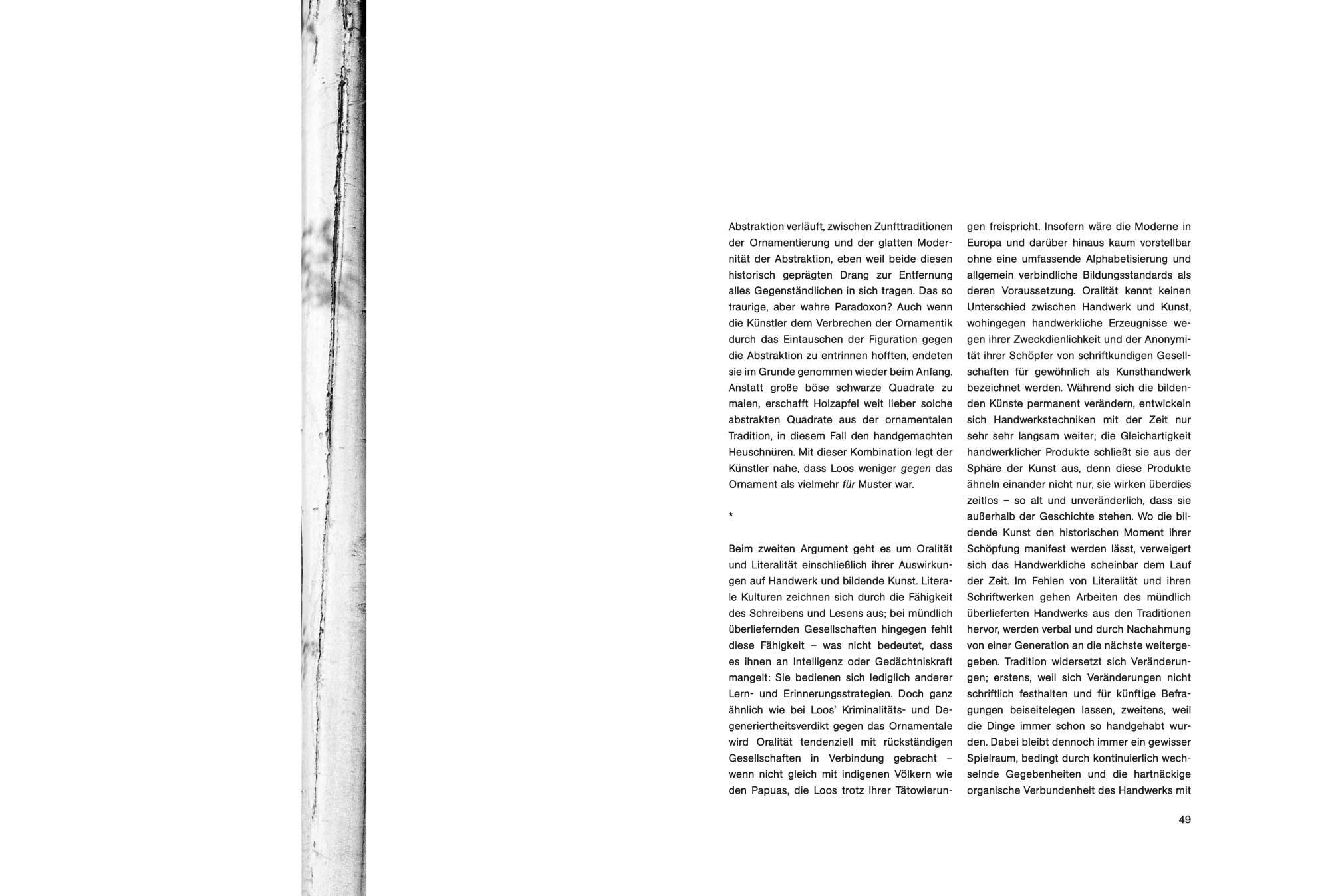
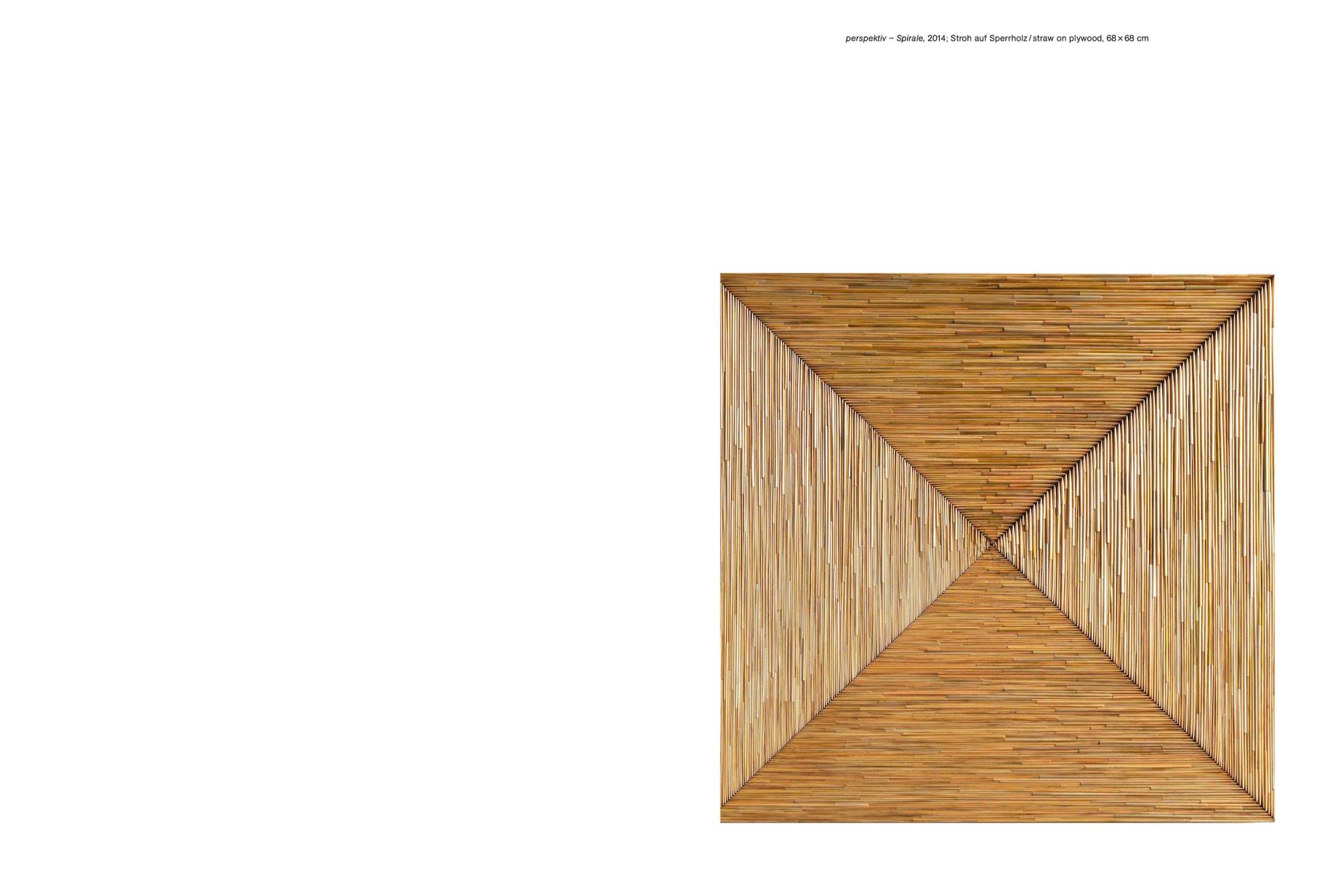
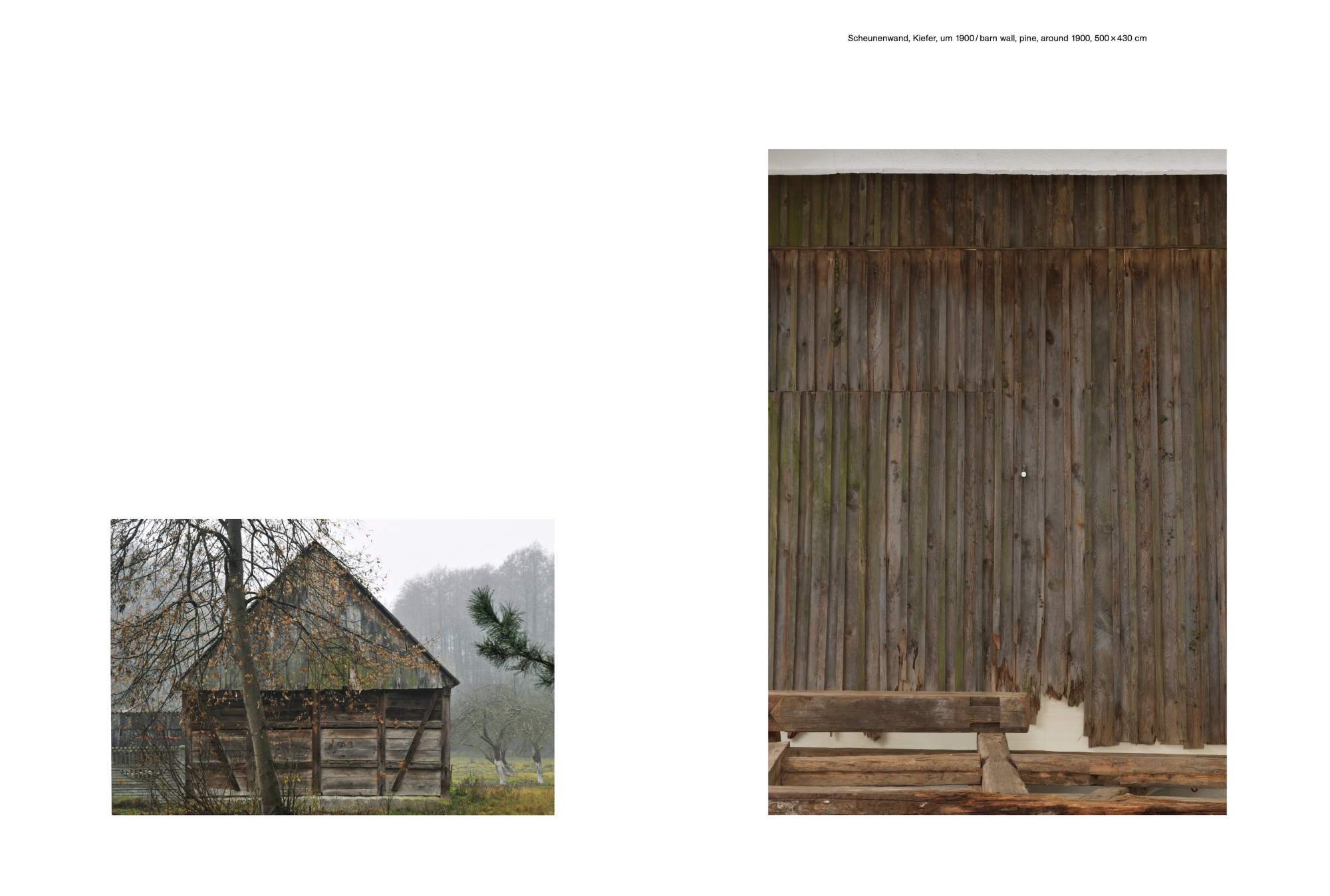
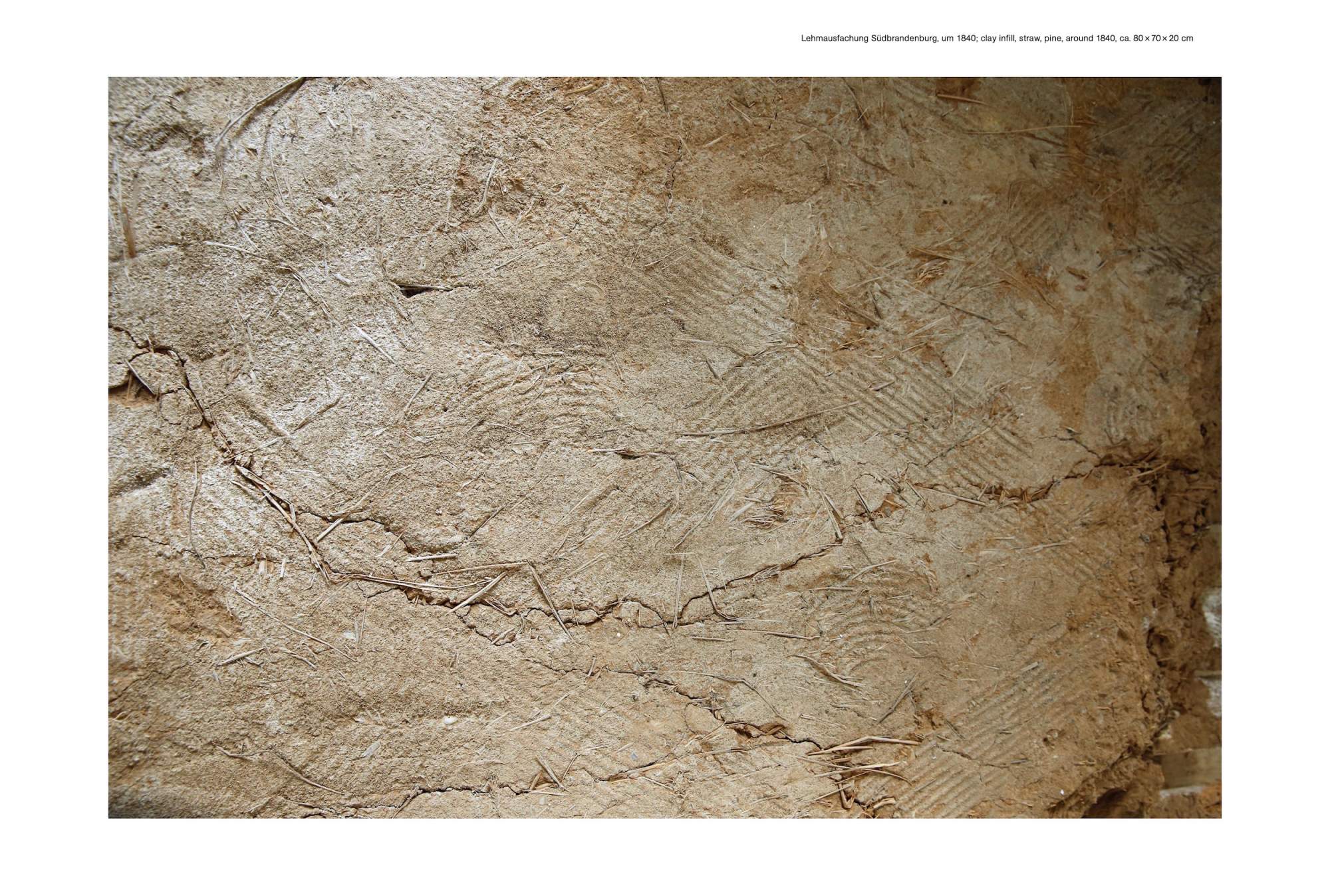
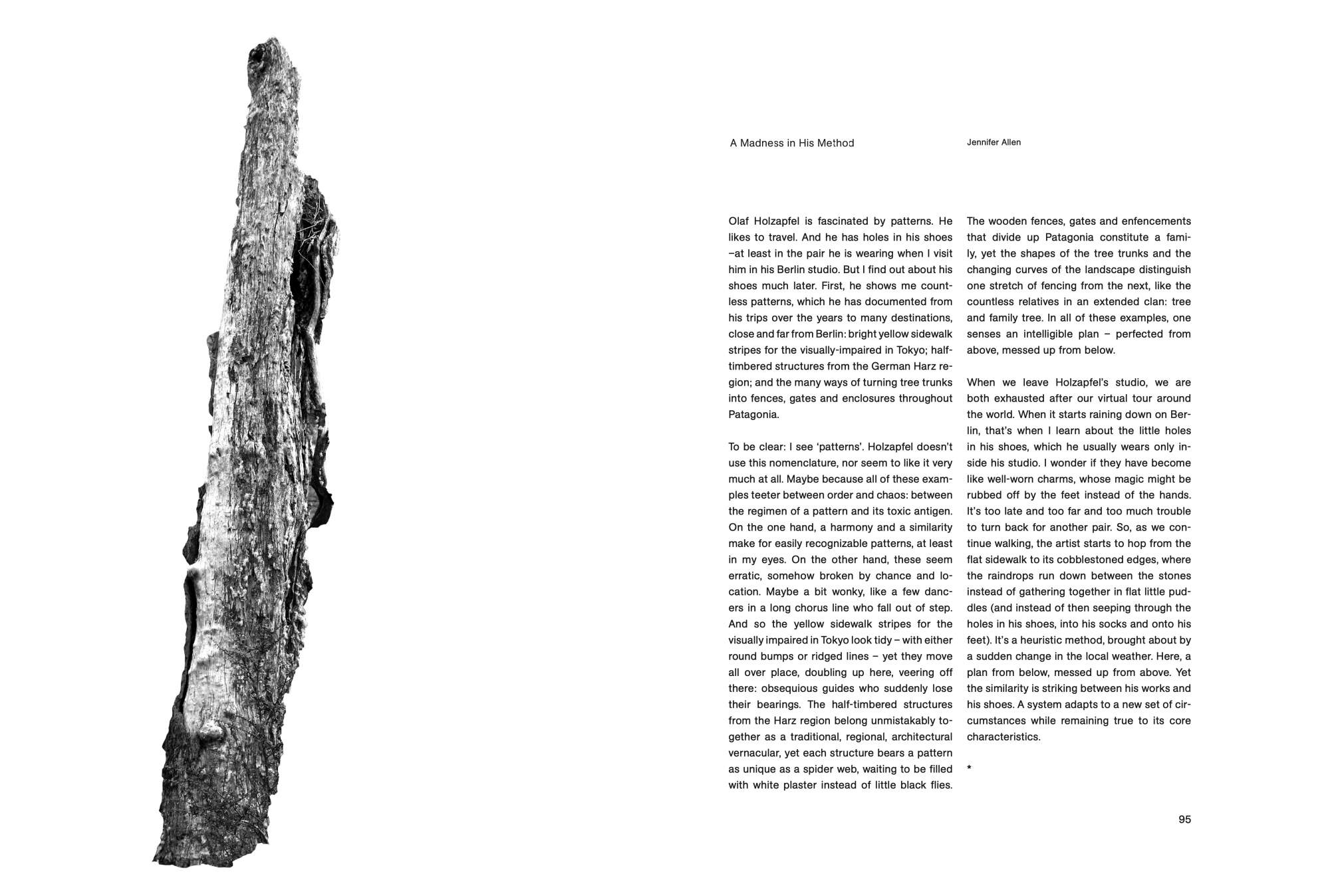
Hardcover
€28.00
